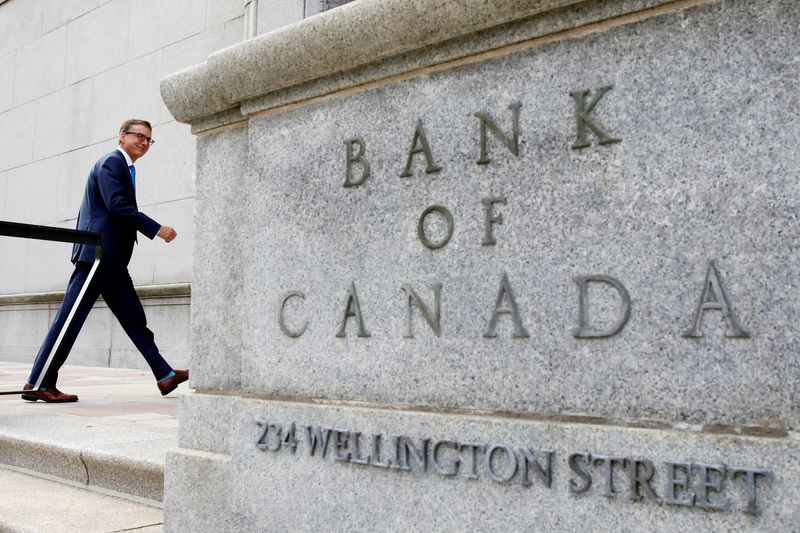By Julie Gordon and Steve Scherer
OTTAWA (Reuters) -A persistently strong U.S. dollar, which makes imports and travel more expensive for Canadians, could mean the Bank of Canada will have "more work to do" on interest rates, Governor Tiff Macklem said on Friday, indicating further increases.
Macklem, speaking after International Monetary Fund and World Bank meetings in Washington, also said there was broad consensus at the annual gathering that hot inflation remains the most immediate threat to current and future prosperity.
"In the last six weeks, two months or so, we've seen a further leg up in the U.S. dollar. The Canadian dollar has not kept up," Macklem told reporters.
"Certainly if it persists ... that will mean that, other things equal, we're going to have more work to do on interest rates. We'll be watching that closely," Macklem said.
The Canadian dollar has tumbled 8.5% versus the U.S. dollar since August as aggressive interest rate hikes by the Federal Reserve and financial market volatility triggered gains for the safe-haven greenback.
Macklem also reiterated that interest rates would need to go higher still and said how high, and for how long, would depend on both the domestic and international pressures driving rapid price gains, along with longer term inflation expectations.
The Bank of Canada has raised its policy rate by 300 basis points since March, one of its steepest and fastest tightening cycles ever. Money markets are leaning toward a 50-bp increase on Oct. 26, though bets on a larger 75-bp move have inched up.
Inflation edged down to 7.0% in August and analysts surveyed by Reuters expect another drop to 6.8% when the September data is published next week. At the same time, underlying price pressures have proven sticky.

Macklem said the central bank will be watching the data closely, but said that even if inflation edges down further it would still remain far above the 2% target.
"What's not going to change in two weeks is the economy is still going to be clearly in excess demand, we're still going to have a very tight labor market and inflation. I'd love to see some good developments but it's still going to be too high," Macklem said.